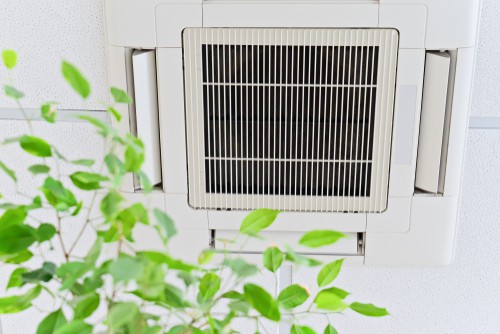
How Humidity Affects AC Performance in Singapore? Singapore’s climate is renowned for its high temperatures and oppressive humidity levels.
With an equatorial climate, the city-state experiences warm weather throughout the year.
As a result, air conditioning has become necessary for maintaining comfort and a suitable indoor environment.
Air conditioning is a luxury and a crucial element of daily life in Singapore. It offers relief from the sweltering heat, making indoor spaces habitable and comfortable.
However, to truly understand the impact of air conditioning in this climate, we must delve into humidity and how it affects AC performance.
Humidity plays a significant role in how we perceive temperature and, consequently, how efficiently our AC systems operate. Read on – How Humidity Affects AC Performance in Singapore:
Understanding Air Conditioning Systems
The Basic Operation of AC Systems
To appreciate the role of humidity in AC performance, it’s essential to grasp the fundamentals of how air conditioning systems function.
AC systems remove heat from indoor spaces and expel it outdoors, creating a cooling effect that keeps us comfortable.
Components of an AC System
AC systems consist of various components, including compressors, condensers, evaporators, and fans.
Each component plays a vital role in the cooling process, but humidity control is a crucial factor that often goes unnoticed.
Emphasizing Humidity Control in AC Efficiency
Humidity control is a critical aspect of AC efficiency. While the primary function of an AC system is to cool the air, it also indirectly affects humidity levels.
Maintaining the right balance of humidity is essential for a comfortable and healthy indoor environment.
The Role of Humidity in Air Conditioning
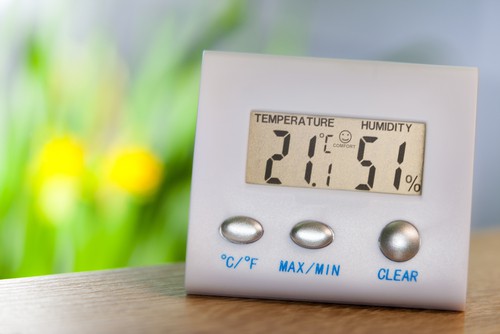
Humidity refers to the amount of moisture present in the air. Relative humidity, expressed as a percentage, measures how saturated the air is with moisture.
Understanding these concepts is crucial for comprehending humidity’s impact on AC performance.
Humidity plays a significant role in how we perceive temperature. Higher humidity levels can make us feel warmer, even when the actual temperature is not exceptionally high.
This phenomenon has a direct bearing on our AC usage patterns.
High humidity can pose challenges to AC performance. As humidity levels rise, the AC system may need to work harder to achieve the desired cooling effect. This increased workload can lead to inefficiency and higher energy consumption.
The Ideal Humidity Levels for Comfort
Recommended Indoor Humidity Levels in Singapore
In Singapore’s climate, maintaining ideal indoor humidity levels is crucial for comfort. Indoor spaces’ recommended relative humidity range typically falls between 40% and 60%.
How Ideal Humidity Levels Contribute to Comfort
Optimal humidity levels provide a comfortable indoor environment by preventing excessive moisture buildup or dryness. Achieving this balance is essential for a pleasant living or working space.
Mentioning the Challenges of Maintaining Ideal Humidity
While maintaining ideal humidity levels is desirable, it can be challenging in a humid climate like Singapore’s. Factors such as outdoor humidity, lifestyle, and daily activities can influence indoor humidity levels.
Effects of High Humidity on AC Systems
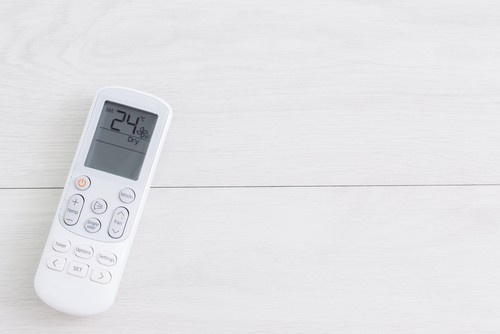
Reduced Cooling Efficiency
One of the primary effects of high humidity on AC systems is reduced cooling efficiency. When the air is saturated with moisture, it becomes more challenging for the AC to remove heat effectively.
Increased Workload on the AC Unit
To combat high humidity, the AC system may need to run for more extended periods, leading to increased energy consumption and wear and tear on the unit.
Potential for Mold and Mildew Growth
High humidity levels can create conditions conducive to mold and mildew growth, compromising AC performance and indoor air quality.
Impact on Indoor Air Quality
Excessive humidity can lead to discomfort and poor indoor air quality. It can make indoor spaces feel stuffy and lead to issues like odors and allergen buildup.
Signs of Humidity-Related AC Issues
Difficulty in Reaching Desired Temperature
When high humidity levels, the AC system may struggle to reach and maintain the desired temperature, resulting in discomfort.
Air That Feels “Sticky” or Uncomfortable
High humidity can make the air feel sticky and uncomfortable, even when the temperature is comfortable.
Condensation on Windows and Surfaces
Excessive humidity can condense windows and surfaces, potentially causing water damage and mold growth.
Unpleasant Odors from the AC
Humidity-related issues can contribute to unpleasant odors from the AC system, affecting indoor air quality.
Factors Contributing to High Humidity
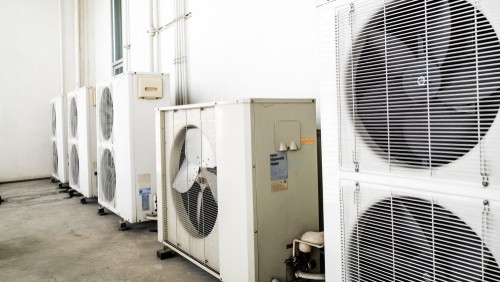
Singapore’s Climate and Weather Patterns
Singapore’s climate, characterized by high temperatures and regular rainfall, contributes to elevated outdoor humidity levels.
Poor Ventilation in Buildings
Inadequate ventilation in homes and buildings can trap moisture indoors, exacerbating humidity-related issues.
Impact of Lifestyle and Daily Activities
Daily activities such as cooking, showering, and even breathing release moisture into the air, influencing indoor humidity levels.
Humidity Control Solutions
The Role of AC Systems in Dehumidifying Indoor Air
Many modern AC systems include dehumidification features that help control indoor humidity levels. These systems remove excess moisture from the air, contributing to a more comfortable indoor environment.
Other Methods to Reduce Humidity in Homes
In addition to AC systems, there are other methods for reducing humidity in homes, such as using standalone dehumidifiers or improving ventilation.
Importance of Regular AC Maintenance for Humidity Control
Regular AC maintenance is essential for ensuring that the system’s dehumidification functions work optimally. Maintenance also helps prevent issues related to mold and mildew growth.
Tips for Improving AC Performance in Humid Conditions
Setting the Thermostat to the Right Temperature
Optimizing your thermostat settings based on humidity levels can help your AC system perform efficiently.
Proper Ventilation Practices
Improving ventilation in your home can help reduce indoor humidity and enhance comfort.
Using Fans and Air Purifiers for Enhanced Comfort
Ceiling fans and air purifiers can complement your AC system, promoting better air circulation and air quality.
Consideration of Humidity-Reducing Appliances
Investing in humidity-reducing appliances like dehumidifiers can be beneficial, especially in areas of the home prone to high humidity.
The Connection Between Humidity and Energy Efficiency
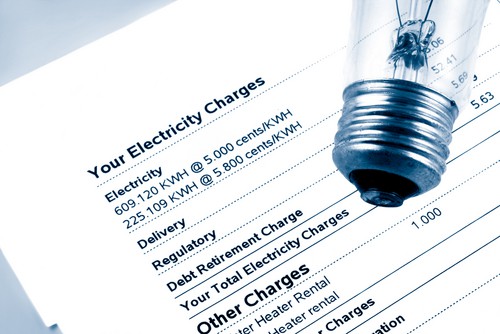
How High Humidity Can Lead to Higher Energy Bills
High humidity can lead to higher energy bills as the AC system works harder to maintain the desired indoor temperature.
Importance of AC Efficiency in Reducing Energy Consumption
Efficient AC systems can significantly impact energy consumption, making it essential to optimize AC performance, especially in humid conditions.
Tips for Saving Energy While Maintaining Comfort
Homeowners can reduce their energy consumption by managing humidity levels effectively and using energy-saving practices without compromising comfort.
The Impact of Low Humidity
While Singapore primarily experiences high humidity, there may be occasional periods of low humidity, which can also affect AC performance.
Low humidity levels can lead to dry indoor air, potentially causing discomfort and respiratory issues. In such cases, the use of humidifiers may be beneficial.
In specific situations, such as extremely low humidity, using humidifiers can help maintain a comfortable indoor environment.
Frequently Asked Questions (FAQs)
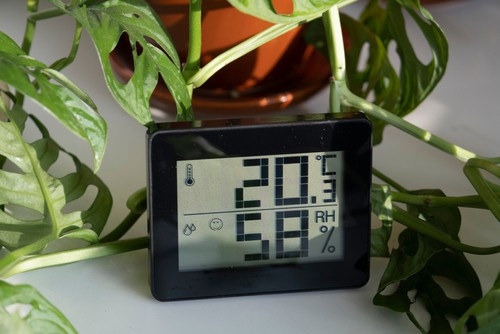
How Does Humidity Affect My AC’s Cooling Performance?
Humidity affects AC performance by influencing how efficiently the system can cool indoor spaces.
What Is the Ideal Indoor Humidity Level in Singapore?
The ideal indoor humidity level in Singapore typically falls within the range of 40% to 60%.
Can High Humidity Lead to Health Issues?
High humidity can contribute to discomfort and indoor air quality issues, potentially affecting respiratory health.
How Can I Reduce Humidity Without Overworking My AC?
Efficient AC operation and proper ventilation are key to reducing humidity without overworking the system.
Are There Any DIY Methods for Humidity Control?
Simple practices like using exhaust fans and ensuring proper ventilation can help control humidity on a DIY level.
Should I Use a Separate Dehumidifier with My AC?
In some cases, using a standalone dehumidifier alongside your AC system can provide enhanced humidity control.
Can Humidity Levels Impact My AC’s Lifespan?
Excessive humidity can contribute to mold growth and potential AC damage if not adequately controlled.
How Does Humidity Affect Indoor Air Quality?
High humidity can lead to issues like mold growth and discomfort, affecting indoor air quality.
What Are the Energy-Saving Benefits of Humidity Control?
Efficient humidity control can lead to reduced AC usage, resulting in energy savings.
Do I Need to Adjust My Thermostat Based on Humidity?
Optimizing your thermostat settings based on humidity levels can help improve comfort and energy efficiency.
Is Low Humidity a Concern in Singapore’s Climate?
While low humidity is rare in Singapore, it can impact indoor comfort during specific weather conditions.
How Humidity Affects AC Performance in Singapore – Conclusion
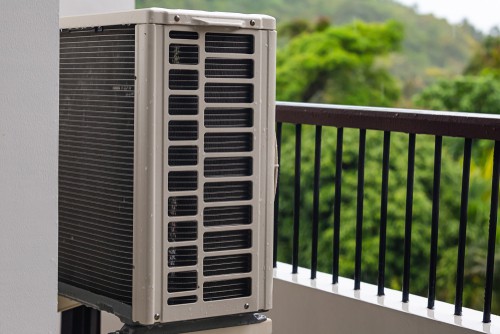
Understanding the intricate relationship between humidity and air conditioning is essential for maintaining a comfortable and healthy indoor environment in Singapore’s hot and humid climate.
As residents of Singapore, taking proactive measures to manage humidity levels and optimize AC performance is vital for enhancing comfort and reducing energy consumption.
In conclusion, achieving the right balance of humidity and temperature is key to enjoying a comfortable and healthy indoor lifestyle in Singapore.
By staying informed and implementing humidity control strategies, we can make the most of our air conditioning systems and create optimal living conditions in this tropical climate.
Are you seeking professional and reliable aircon services in Singapore? Contact us today!
